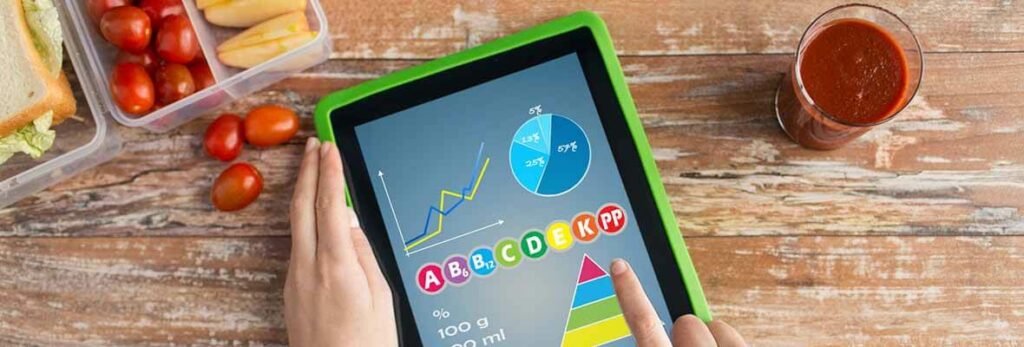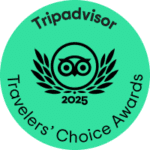I think most people understand counting calories is not a magic weight-loss bullet. They get that restricting calories doesn’t necessarily mean healthy eating. They know that even if you keep your intake to a low very number like 1,400 calories a day, you’re not doing yourself any favors if they’re the wrong kind of calories. For example, you could have cream with a touch of coffee for breakfast, a slice of pizza for lunch, and spaghetti with garlic bread for dinner: 1,400 calories, right? But everyone knows that’s not a healthy diet—heavy carbs, no veggies at all.
Sorry folks! Pizza and spaghetti sauce only count as a vegetable for children under 12!
To be totally honest, the term calorie is starting to give me high blood pressure these days because of the endless yammering about…you guessed it: calories. I say this to my friends, family, and clients and they say “WHAT?!! Lindsay, are you saying I’ve been counting calories for no reason?” To which I reply, “Absolutely not.” Here’s the deal: if you’ve been logging your calories then I want to give you a high five for your work. Holding yourself accountable? Awesome! However, stressing out over how many calories you consumed at lunch? Not fun! I get the feeling from a lot of people, especially those striving to manage weight, that just the concept of counting calories carries tons of negative baggage.
Here are some common reasons why counting calories—and even the word calorie itself—has a bad rap:
- Diets that tell you to eat for 5 days, fast for 2 days, and consume less than 500 calories on fasting days. Total nightmare.
- Juicing and/or cleansing regimes. They always involve low calories and promise rapid weight loss. And guess what? They almost always backfire.
- Diets that urge you to eat less than 1,200 calories per day for extended periods of time. Again: total nightmare. Life is meant for living and you need to eat real food, okay?
- Programs that advise you to be strict Monday through Friday, then have a free-for-all on the weekends. At face value this should be suspicious.
- The practice of restricting calories all day and then binging at night. Clearly a recipe for disaster.
- The practice of restricting calories before a dinner party so you can eat as much as you want at the event. Not only is this miserable, the numbers rarely add up.
- The practice of over-exercising because you ate too much the night before. I’m talking about punishment workouts. This habit can quickly spiral out of control.
The second thing I want to clear up—all calories are not created equal; a calorie is NOT a calorie. Dr. Robert Lustig, a pediatric endocrinologist from the University of California, drives this point home in his book Fat Chance. He clarifies what most health-conscious people now understand: trans-fats should be eliminated from the diet; however, they have the same amount of calories (gram for gram) as the type of fat found in wild Alaskan salmon or avocado. But we all know salmon and avocado are good for you, while trans-fats are not. We can also make the same argument with candy and fruit—gram for gram the sugar may be the same, but the calories from the fruit are going to be much better for you than the calories from candy.
So you get all that. Now what? I’m going to offer a few examples of when and when not to count calories. You can take this information and decide whether counting calories is right or wrong for you and your situation.
When to count:
- If you’ve never counted calories before. Logging how much you eat for at least 3 consecutive days can provide some great basic information on total energy consumed, portion distortion (the ridiculous sizes we’ve become used to over the past decade or so), and give you a good foundation for making logical eating choices.
- If you have specific athletic goals or a health condition that requires specific you to count. For example, someone with type II diabetes needs to record their food and carbohydrate sources and compare that to a blood sugar reading to help determine what foods contribute to their to spikes and falls. Also, an athlete who’s serious about strength training during a mass-build phase is well-served by recording food intake and timing meals to optimize progress.
- If accountability works for you. Perhaps you recognize a calorie is not a calorie and the discipline of logging and tracking calories keeps you on the straight and narrow.
When not to count:
- If you have a history of binge eating or eating disorders, don’t count calories. Your goal is to create a healthy relationship to food and eating. To do that, you need to build a solid meal plan, not count calories. Your goal is to decrease binging episodes or unhealthy behaviors—not track what goes in and out. Creating a satisfying and sustainable relationship to food and eating is your number one priority. Everything else will fall into place after that.
- Don’t count calories if it stresses you out. For some people, logging and tracking can be fun and motivating. For others, it can be confusing and stressful. It’s like exercise: if the whole thing is causing you stress, it’s not likely you’ll keep it up for very long.
- If you’ve tried it before and it didn’t work, then you’ve been there and done that. Try something else. I’m sure most everyone has gone through phases of counting when it worked for a brief period of time then dropped it for whatever reason. Be honest with yourself: it didn’t work for you then, it probably won’t work for you now.
To summarize, consider reframing how you think of the word calorie and re-evaluate your relationship to the idea of counting calories. Remember, you want to come up with a meal plan that best suites you. It has to be sustainable and livable. Easier said than done, I know; however, in order to manage weight and reach specific goals, it’s something you have to do. Your process has to include establishing eating habits and food choices that you can maintain and enjoy for the rest of your life. The sooner you do that, the happier you’ll be.








